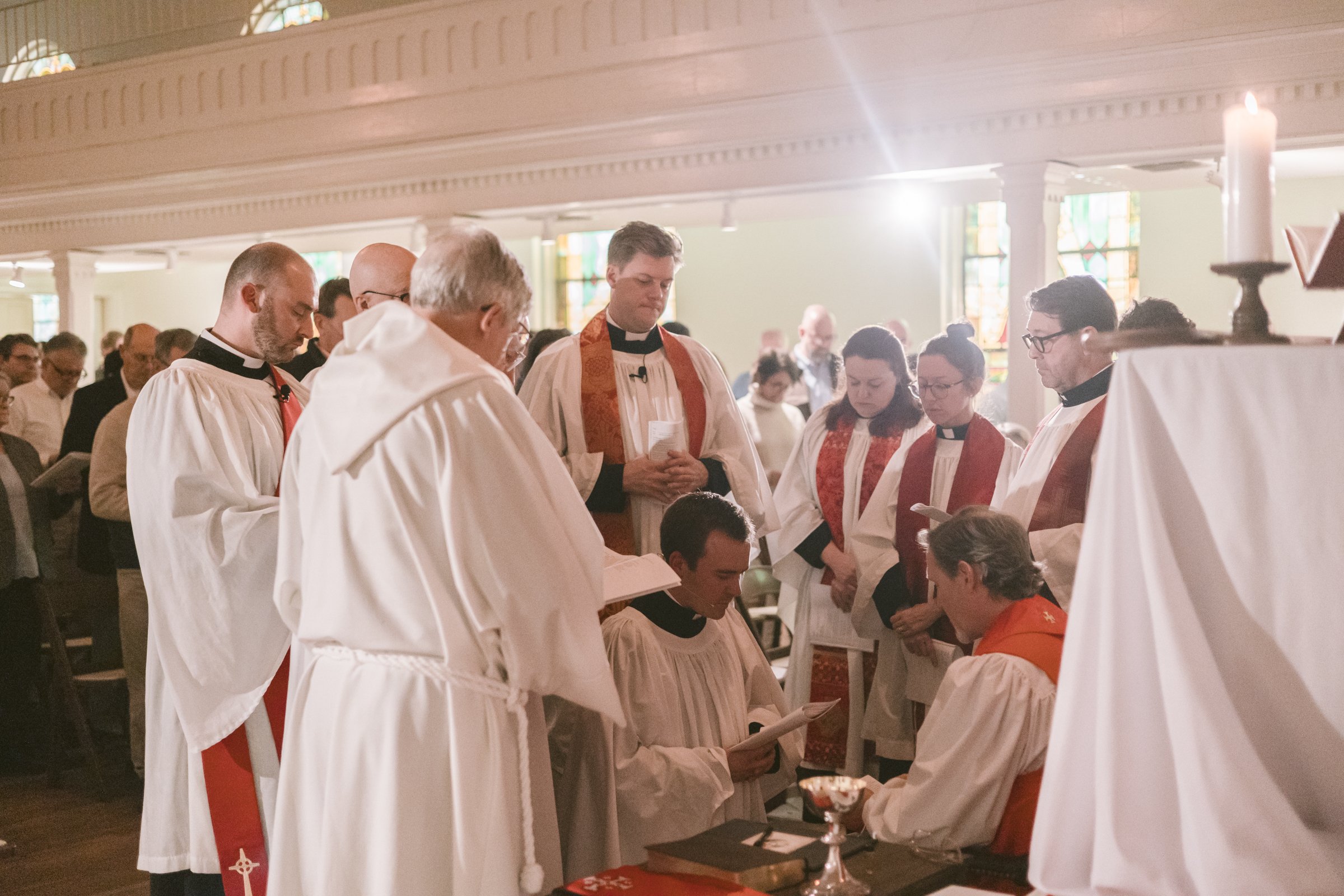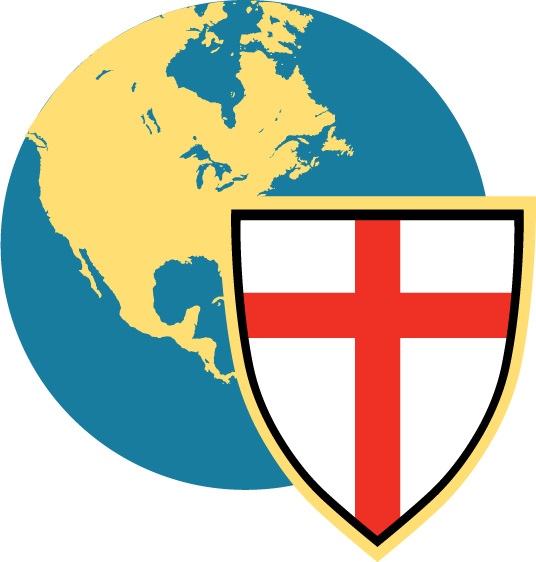
Discerning a Call to Holy Orders
Ordination Process
Brothers and Sisters in DOMA, The Diocese of the Mid-Atlantic (DOMA) welcomes your interest in exploring a possible call to ordained ministry in the Diaconate or Priesthood. We applaud your desire to be obedient to God’s call and your heart to follow and serve Him.
Below is an overview of the process for ordination in the Diocese of the Mid-Atlantic. To begin the process, you must first discern your call with your Rector and local parish discernment committee.
If you have questions about the process, please feel free to contact Rev. Jim Beavers, Canon for Ordinations and Chair of the Ordination Committee.
May our Lord bless you as you seek His will.
Learn more
-
Discerning a call to Holy Orders begins with your seeking to hear the Lord’s direction through your prayers, Scripture study, and open conversations with family and others who know you well. The next step would be at the Parish. A parish discernment process will start with your rector's careful inquiry over several meetings. If the Rector begins to sense that you may be called to Holy Orders, you will be invited to participate in a Church Discernment Committee (CDC) over a period of months. If the CDC recommends proceeding, you will be asked to formally submit an application to the Diocese.
-
Application for consideration of ordination to Holy Orders makes one an Aspirant. As an Aspirant, you will meet with the Bishop or his appointed representative to engage in a meaningful interview process. Evaluations, questionnaires, and background checks will be conducted as you continue this stage of your discernment process. These and other elements will lead to a formal interview retreat with the Ordination Committee and others to further discern granting you Postulancy. The Committee makes its recommendation to the Bishop; the Bishop is the one who grants Postulancy.
-
If you are made a Postulant at the ordination retreat, the Bishop will assign any educational work needed. During the period of educational work you will submit Ember Day letters, attend synod, and participate in various Diocesan trainings.
-
At the conclusion of your educational requirements. You will be invited to meet with the Examining Chaplains for review and assessment of the nine canonical areas of study. Postulants will be invited to advance to Candidacy for Ordination to the Diaconate following canonical exams. In some cases, the Bishop may allow someone to advance toward ordination to the transitional diaconate ahead of completion of their seminary degree. In addition to continuing submitting Ember Day Letters, the Ordination Committee will conduct a candidacy interview and make their recommendation to the Bishop. Candidacy requires the approval of the Standing Committee. Upon approval from the Standing Committee, a date for Diaconate Ordination is set (typically during Synod.)
-
The Bishop assigns each Deacon to a local parish for practical training and experience. If not already completed, the Deacon will complete the remaining educational requirements, submit Ember Day letters, and participate in Diocese training and events.
-
During the time as a Deacon, application can be made to be considered for Candidacy for ordination to priesthood (typically one year or more after ordination as a deacon) and complete final interviews.
"...and so fill them with the truth of your doctrine and adorn them with holiness of life..."
— Book of Common Prayer
